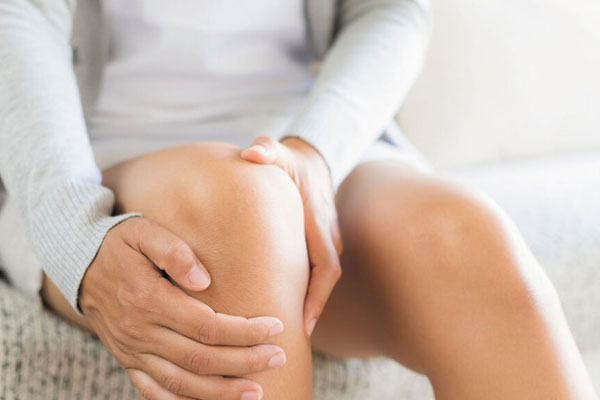
Knee pain is one of the more common complaints among patients experiencing pain related to musculoskeletal injuries. As a Rheumatologist and chronic pain specialist, I frequently see patients desperately looking for relief. My first task is always to figure out what is causing the pain. Only then can I treat it.
The difficult thing about knee pain is that so many things can cause it. The good news is that, once the source of pain is discovered, there are very effective treatments available to us. I would encourage you to see a Rheumatologist if you are suffering from acute or chronic knee pain.
Without further ado, here are the five most common causes of knee pain:
1. Osteoarthritis
Osteoarthritis is a degenerative joint disease that strikes millions of people. Although it is fairly common among older people, it can strike at any age. It routinely causes pain and stiffness in both knees.
Osteoarthritis is caused by a loss of cartilage between the bones of a given joint. As cartilage wears away, the bones begin to grind on one another. This is what causes the pain and stiffness.
2. Gout
As a private consultant for gout, I see many patients who think they are suffering from osteoarthritis but whose real problem is gout. Gout is a condition caused by the build-up of uric acid in the system. This build-up leads to the formation of small crystals that can collect around the joints. Like osteoarthritis, gout causes pain, swelling, and stiffness in the knees.
3. Bursitis
The joints are cushioned by sacks of fluid known as bursa. If one of these sacs becomes inflamed, the patient has developed bursitis. Typical bursitis symptoms include redness and swelling, tender and warm skin, and a pain normally described as dull or aching. Bursitis pain tends to increase significantly if you push on the joint or move it.
While bursitis can occur in any joint, it is most common in the knees, hips, elbows, and shoulders. It can be especially painful in the knees due to the amount of load these carry when a person walks.
4. Strained Muscles
So far, we have discussed conditions that cause knee pain without injury. They are all conditions involving the joints. However, some causes of knee pain involve the tissues surrounding the joints. Many of these conditions, including strained and sprained muscles, are the result of injury.
Muscle strains and sprains are caused by putting too much stress on the muscle in question. For example, twisting your knee could result in a sprain. Muscle strains and sprains are characterised by dull pain, tenderness, inflammation, and general weakness in the affected joint. Bruising may occur as well.
5. Ligament or Tendon Damage
Ligaments and tendons are tissues that connect bones and muscles. When they are injured, patients can experience mild to severe pain. Pain levels are generally commensurate with the severity of the injury. Ligament and tendon tears are the most serious of these types of injuries.
Are you suffering from any kind of knee pain? If so – and it’s chronic – you might be suffering from one of the first three conditions mentioned in this post. I would be happy to see you at any of my London clinics as soon as you are able to come in. If you are suffering from acute knee pain, it’s quite likely that you have injured the joint or one of its associated muscles, ligaments, or tendons. I would be very happy to assess you regarding any form of acute or chronic knee pain at any of my London based clinics.
Article by Dr. Naveen Bhadauria



